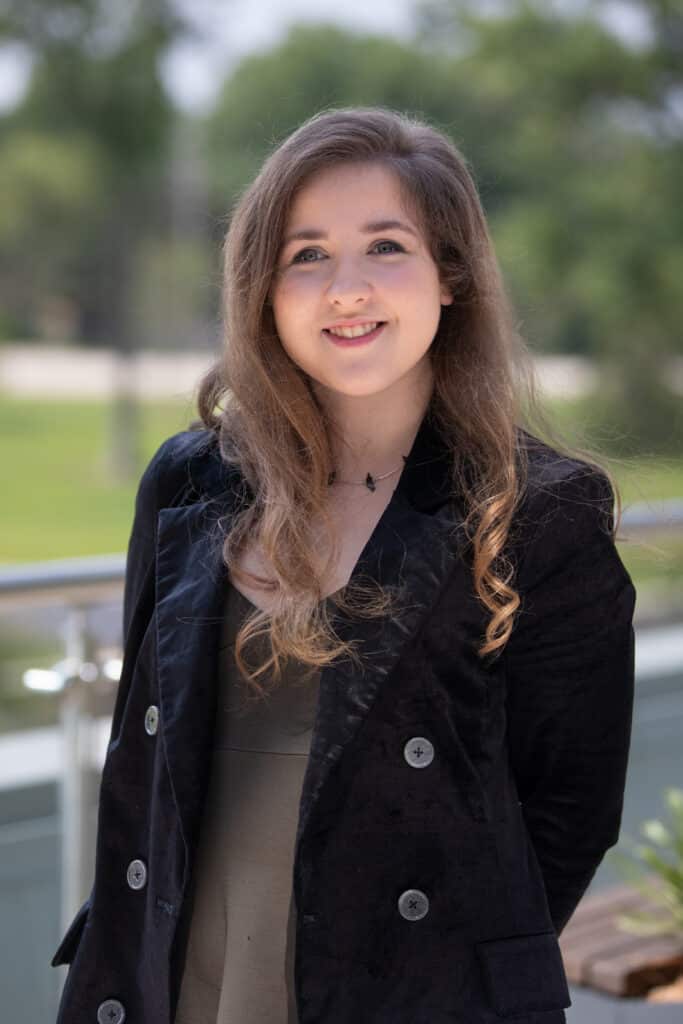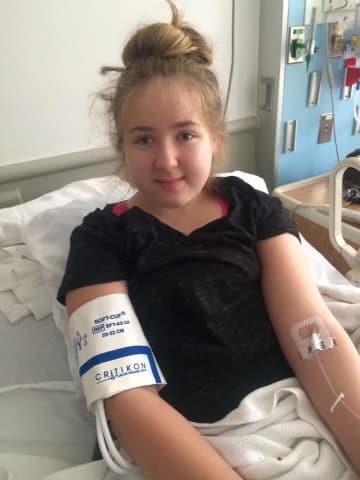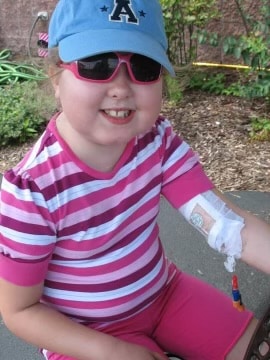
Choose Your Language:
Posted by: The Sumaira Foundation in NMO, Patient, Voices of NMO

At age eight, when I first started chemotherapy for my autoimmune disease, the neurologist told my parents the maximum amount of time I could be on it was three years, then we’d have to switch to some other medicine.
“There’s no long-term data on what it can do to kids,” he’d said. But we were too afraid to switch to something else simply because of a lack of long-term data; we had finally gotten me somewhere stable, somewhere safe, or as safe as I can be, in a body that considers itself an enemy it ought to destroy.
It’s been 13 years since I started treating my illness. I used to go in every 3 months, and now I go in every six. Thirty seven infusions done, infinity to go. The next one will be in May.
People often ask me, “when will your life go back to normal?” or “when will you get your last round of chemotherapy?” I smile obligingly and change the subject to lighten the mood.
It is never over, regardless of how badly I wish it was.
Sometimes, my old pain returns.
The fiery sensation on my back, although I can’t sleep or even think when it’s happening, is not nearly as bad as it was when I was only six, only seven, only eight.
But this decade-later mimicry of my prior attacks fills me with dread and fear. I’m asking myself,
Wwhat if it happens again?
What if I’m sick again?
Everything is going to be taken from me again by this awful ghost that’s been haunting me my whole life.
I don’t want everything I’ve worked so hard to build for myself to just disappear.
I soldier through. I keep persuading myself that any pain is nothing more than smoke from the flames of my past. I will convince myself that it is not another spark.

At the very least, now I can treat the pain whenever it comes. When I was a kid, I had nothing to quell the storm inside me at all. Only the fatigue I had from staying up all night long, only ineffective ibuprofen, and what had felt like unanswered prayers. I had only the blaring of children’s cartoons turned up loud enough to drown out my desperate-for-relief cries. I had only my parents’ presence with me through these attacks, during which the fire truly was there, not just the smoke, causing permanent injury to my spinal cord.
There was no relief from the issues I faced during my childhood, so I had to stay there. I had to live inside the pain, inside an agony my doctor didn’t believe existed, night after night. We begged my doctor to look into this, but she refused to.
You fell through the cracks in the system, the world says.
Or was I pushed through? I ask the world.
Since I was six at the time, I couldn’t explain what I was feeling other than pain. How was I supposed to know how to describe a spinal cord developing extensive lesions? But now, as an adult, I can. It’s like invisible iron, melting over the skin on my back, it’s the charring of my flesh. Acid rain. A violent fire, a line cut-cut-cutting. It’s being branded.
I can describe it now, but I can’t ever help that little girl who doesn’t know how to spell the name of her diagnosis, let alone know how to describe her symptoms. I can’t be her voice. I can’t save her, and it drives me insane. No doctors would help us—my mother was called “obsessed” to her face for insisting there was an illness there that they just couldn’t see and thus did not believe.

It all began when I was six. At age seven and eight, more attacks on my spinal cord came, and my doctor still chalked it up to growing pains, or more insultingly, constipation. As time has passed, I have begun to pick up the pieces. This is another document of my journey. Writing is my way of remembering what happened.
I have grown up, despite my illness, despite the outlook and the numbers. I am fortunate. I am okay. I am a person, not a pincushion. I am older than I’d thought I’d ever get to be. I am older than my parents ever thought I’d get to be.
I am grateful. But I am sad. I am sad that this has happened to me. I am sad that this has happened to others. When I was a kid, all I wanted was to not feel so alone anymore. I wanted to meet other kids who were “sick” like me. Now, I can’t bear to think there are other kids growing up with my same illness.
This is why we have to advocate.
To keep our family small. We have to develop support groups and message boards to keep even the loneliest of us together. We have to be voices for the unsung.